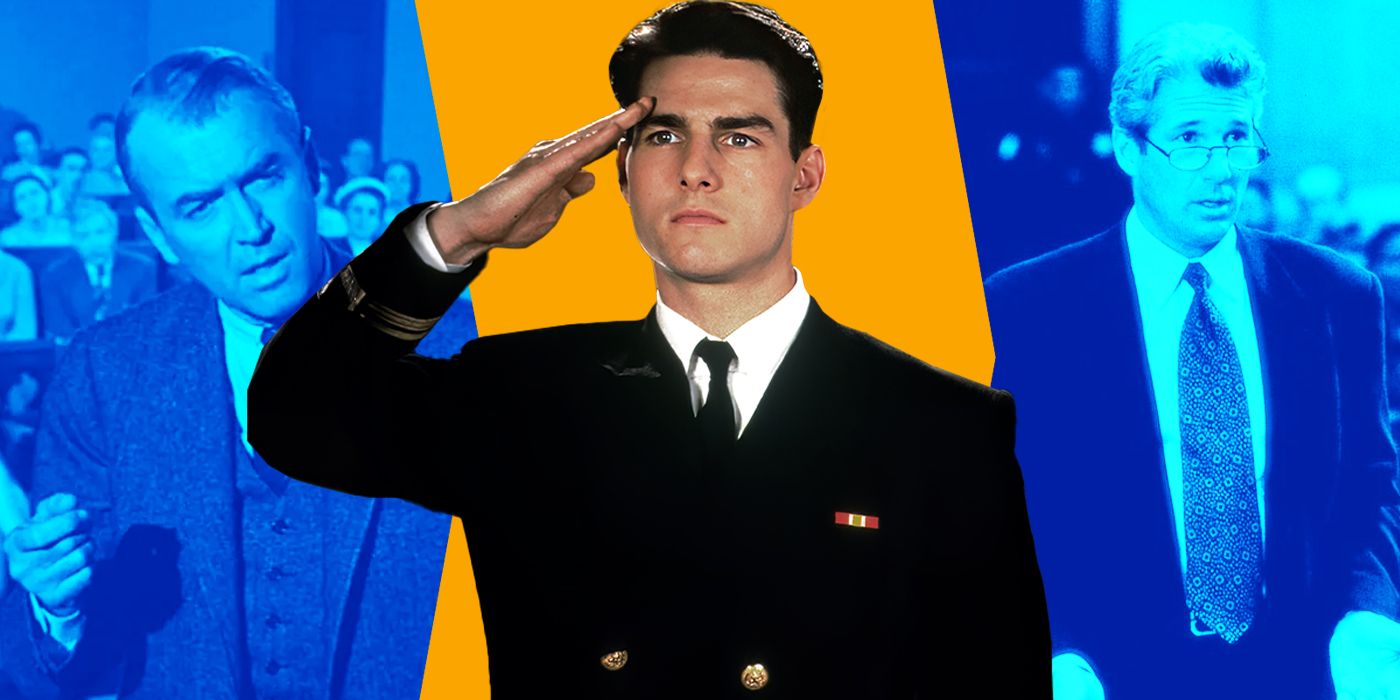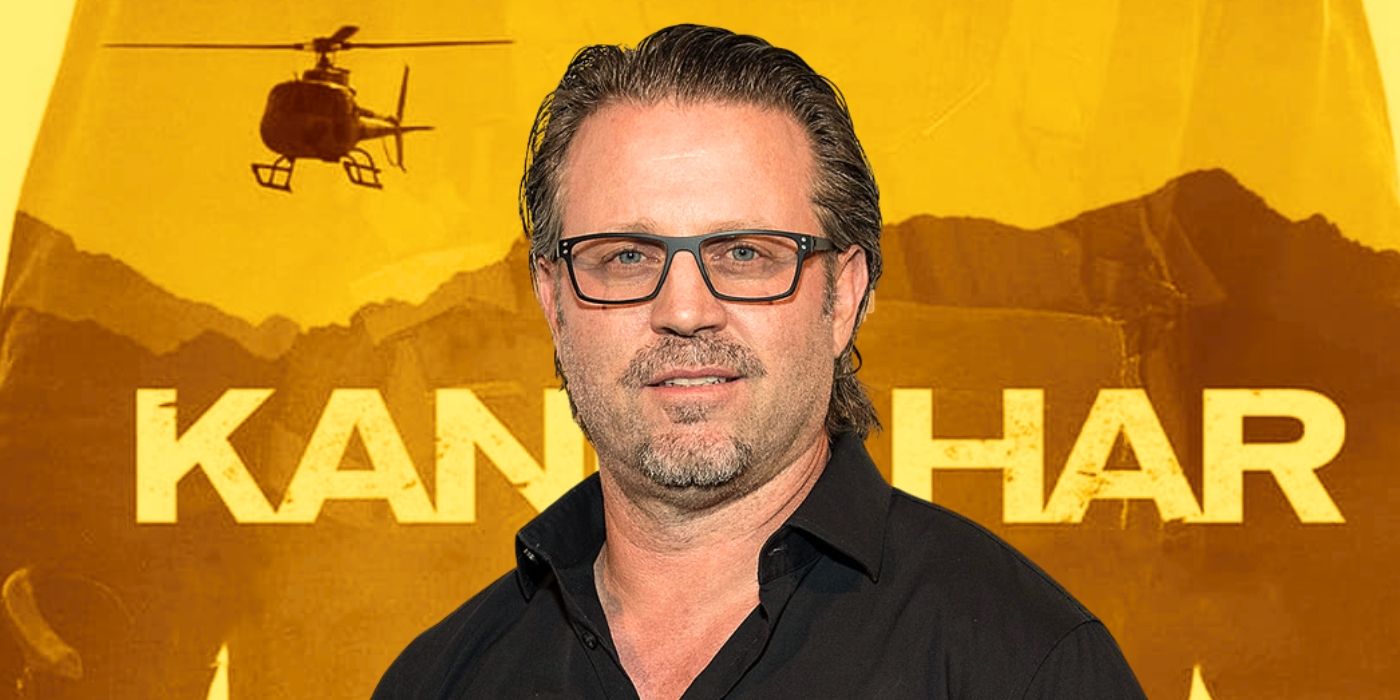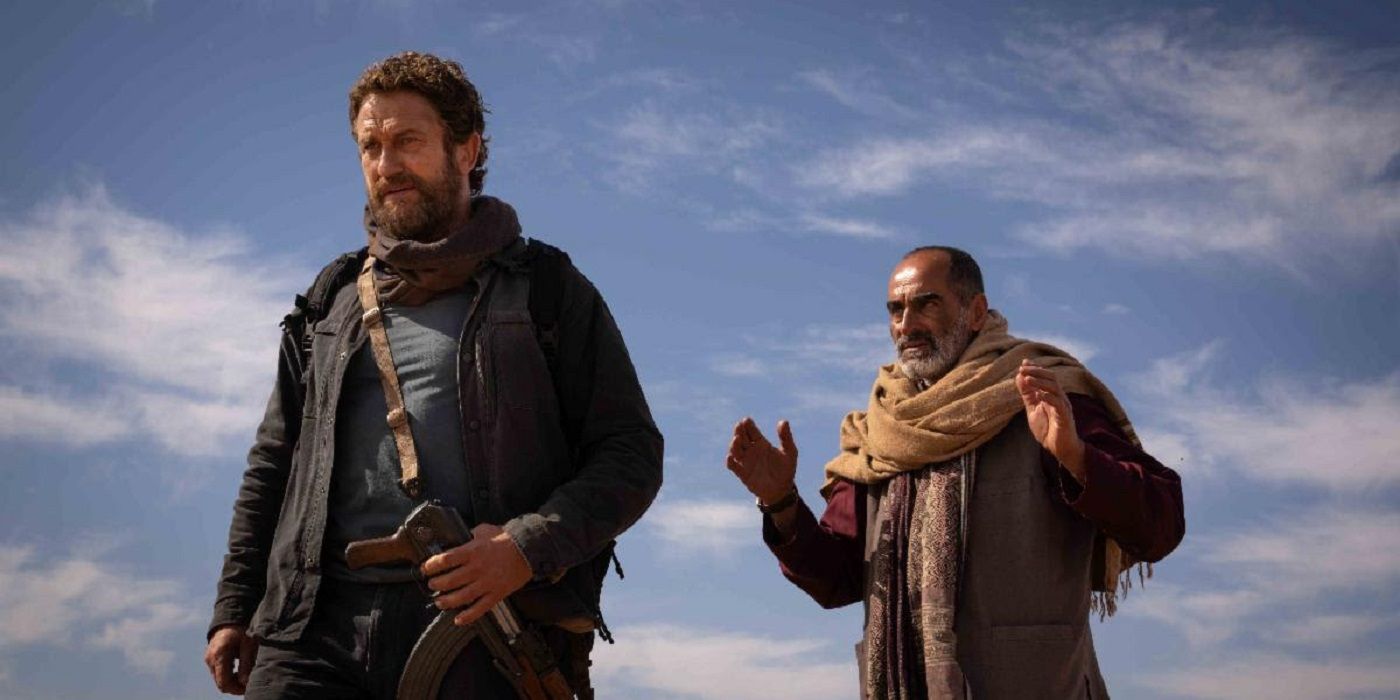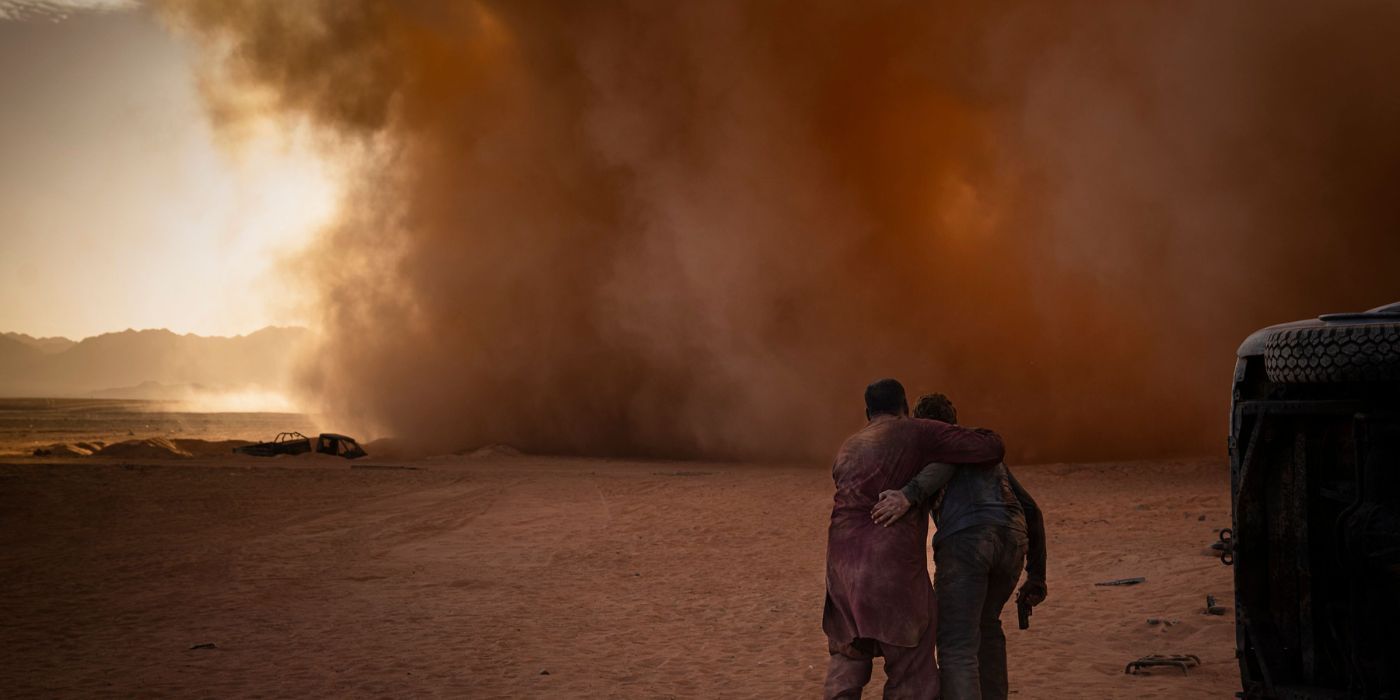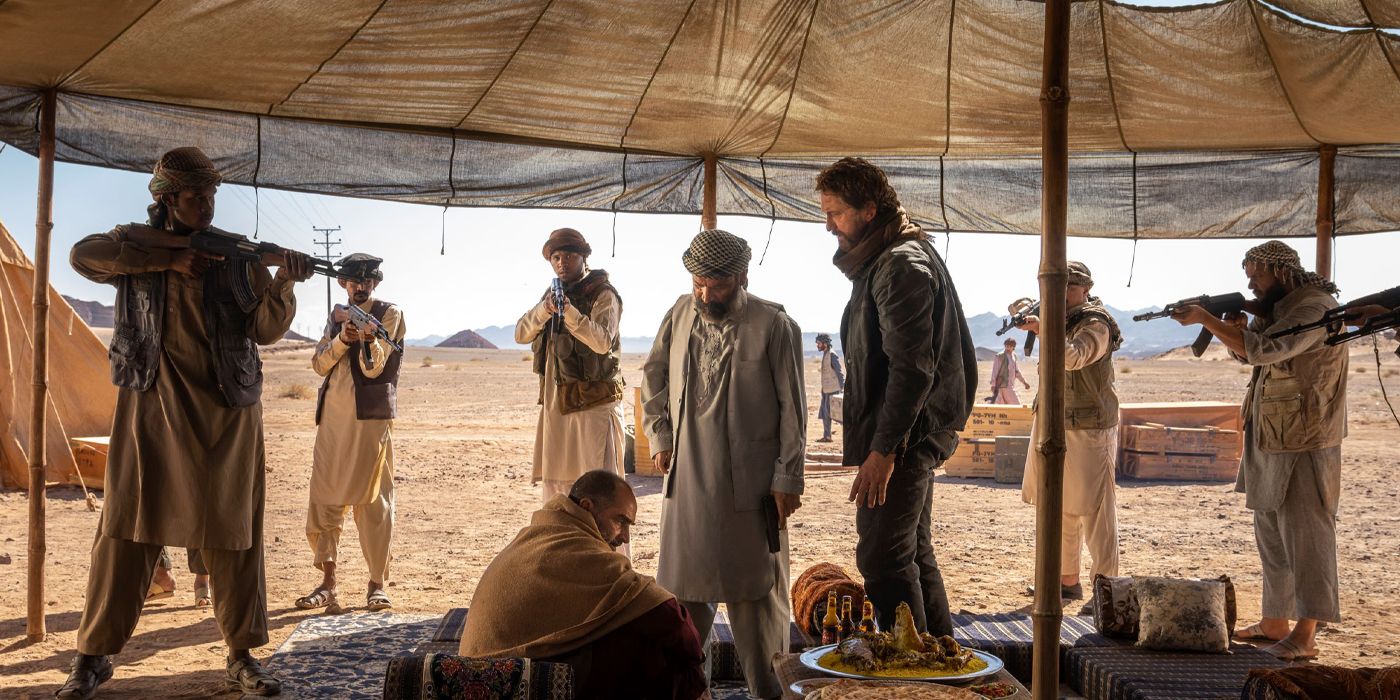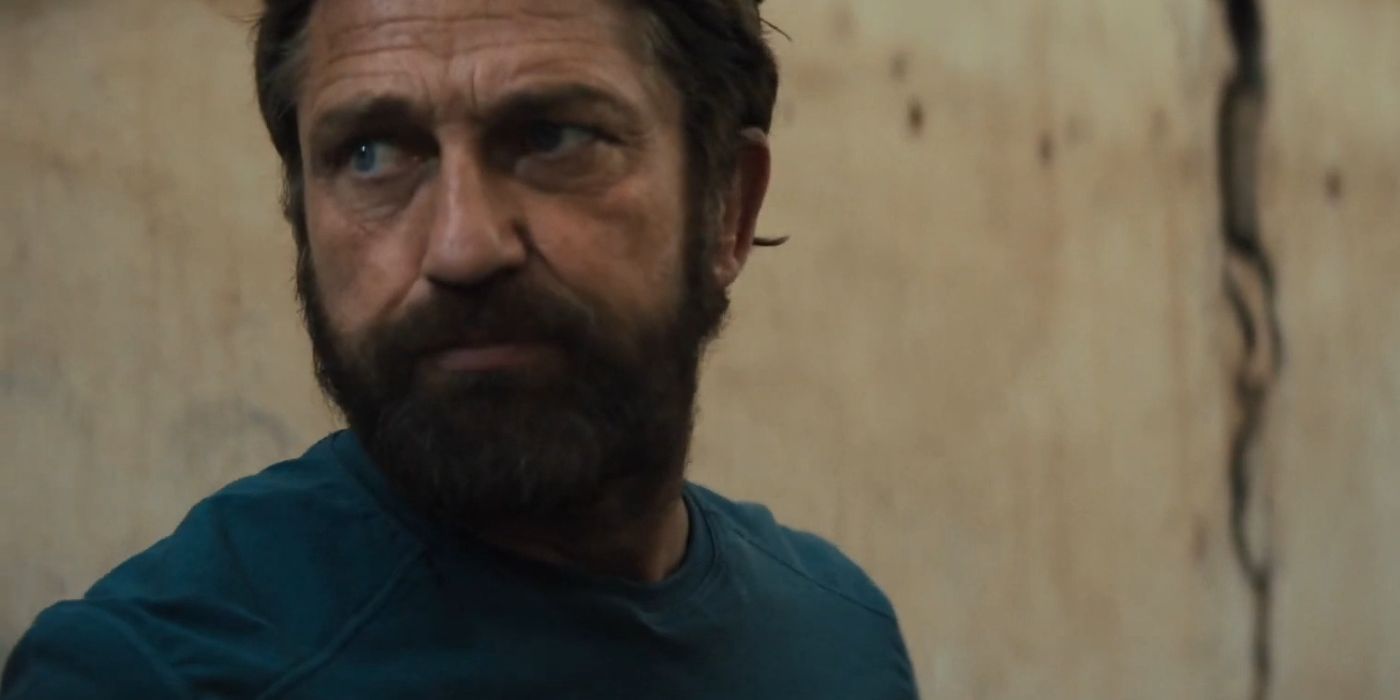Director Ric Roman Waugh (Angel Has Fallen, Greenland) returns to the big screen this Memorial Day weekend with Kandahar, starring Gerard Butler. If you missed out on Collider’s early screening and Q&A with the filmmaker, fear not. Collider’s Steve Weintraub spoke with Waugh exclusively about the making of the action thriller, what he calls the “Sicario of the Middle East,” filming on location, and his collaboration with Butler.
Kandahar is a heart-pounding race against time after CIA operative Tom Harris’ (Butler) cover is blown during an operation to sabotage Iran’s nuclear reactor. Under extraordinary circumstances, Harris and his translator, played by Navid Negahban, have no choice but to cross 400 miles of hostile territory in exactly 30 hours in order to reach an extraction point in Kandahar. Harris is determined to get them home to their families, but with elite forces, helicopters, and minefields between them and safety, the odds are stacked against them impossibly high.
Before Kandahar hits theaters on May 26, Waugh talks with Weintraub about filming the entirety of the movie across the landscapes of Saudi Arabia, something that hasn’t been done since the ‘60s with Lawrence of Arabia. He discusses the importance of being on location, working with local crewmembers, and filming on historical sites. As for the plot of Kandahar, Waugh notes the narrative is unique in that it it’s post-war and gives perspective on the tension surrounding operation, and why Butler is such a draw for audiences. For all of this and more on the six language in the film, the original three-hour cut, and how nothing was filmed on a sound stage, check out the full transcript below.
COLLIDER: How you doing, sir?
RIC ROMAN WAUGH: I'm doing good man, I'm doing good. It's been a heck of an experience on this one.
In a good way or in a bad way?
WAUGH: In a good way. I think that this was a very extraordinary undertaking, but at the same time, it's kind of a very big passion project of the movies that feel like they're kind of dying on the vine at the box office, of keeping them theatrical versus the adult action movie going straight to streaming. So, doing everything we can to really get people to understand that we need to all kind of help ourselves here. Hopefully, if they like a movie like this, they’ll go grab a tub of popcorn and go see it because we're at that weird, dangerous place right now of only animated and big superhero movies, and we need those, but I love adult movies, as well.
A lot of people really like Gerard Butler, and his movies tend to overperform in a way that always surprises people. What is it about Gerard that people seem to respond to? Because if you look at his last number of movies, even like Greenland and things with you, they just overperform.
WAUGH: He plays human characters. I think that when you go to see a big superhero movie, then go take a ride with a superhero, but when we're making a movie of this ilk, I think, unfortunately, a lot of his peers still try to be 10 feet tall and bulletproof, impervious to pain, no flaws. When we started Angel Has Fallen together, he was kind of bored, where Mike Banning had gotten to where he would just kill 50 people and nothing would ever happen to him. So, we made him a pill-popping secret service agent that is defying his own mortality, trying not to hang up the gun, and one of the ramifications of that, he doesn't have a problem playing vulnerability and being sensitive, being raw emotion, playing into the flaws of mankind to where he becomes relatable to us. The way that the ‘70s characters were relatable to us, and even some of the ‘50s characters, Gerry is that of today; he's a guy that we relate to because he kind of plays it from a very kind of raw point of view.
You've worked with Gerry a lot, and I'm definitely curious, what is he like in pre-production, production, and then post-production in terms of – especially with post – how involved is he in the edit, or does he want to see it when it's done? I'm just curious if you could take me through what he's like in the different collaboration zones?
WAUGH: We're probably most involved together in the early stages of really getting the script right and what we want the voice to say in the movie, and so forth. And then when we're executing on set, there might be some ideas that come up, and so forth. But we're polishing that rock that we already know that we really constructed, and then I usually go away with the director cut, and get the movie to where I want it, but it's also been built in a way that it's the same movie that we've talked about from the inception, so that by the time we get to the first test screening and we're looking at stuff together, then he can bring his objectivity of, “Have you thought about this? What about that? I don't think this is playing this way.” And so he becomes a partner in a way where you get deep into the weeds of these things.
I did an advanced of Kandahar the other night and it was sold out, and so I gave up my seat and everybody was like, “No, no, no, no, you have to see it!” I'm like, “I've seen it 1000 times. I promise you, I know every single nuance of this movie,” and you lose your objectivity at a point, as you know, and so it's good to have sounding boards that were in from the inception point with you, of seeing what happens on the other side of it.
With Kandahar, you have a lot of action in it. Which sequence was the one that gave you nightmares?
WAUGH: Jaws in the Sky. The helicopter sequence at night was one that was very complicated to shoot because of safety, and also I wanted to do it real. I did not want a CG helicopter. And it was also this kind of idea of, I didn't want the movie – again, we've talked about the landscapes of Saudi Arabia – I didn't want the movie to look like this dirty, desaturated dust bowl that I've seen on all the other movies, you know, with army green camo and all that stuff. I wanted to show like Steve McCurry-style, this lush beauty of that region in the primary colors that grab you – not so many colors at night in the pitch black desert. So it was about finding unique ways of finding this theme of Jaws in the sky where Jaws was scary to me, if not when I saw the shark, it was when my legs were dangling on the water and I couldn't see the shark, and wondering whether the threat was gonna come. So we would play with the darkness to our advantage, but allowing the audience to have moments where they can not only see the shark but also the beauty of the desert at night.
There is real technology called Fusion, which embraces night vision with also thermal imaging technology together, they're overlaid together, and you can change the color pattern. So I wanted to be Ansel Adams, so we created a black and white image at night to show you the desert at night under the stars, but also allow you to see those glimpses of the thermal energy of a helicopter, or the human beings that are around you, and how you would be hunted or hunt them down.
Something that struck me about the film, and it added so much to it, was filming in Saudi Arabia. It adds so much production value. Every scene I was like, “I've never seen this in a movie before,” or maybe Lawrence of Arabia, but you know, that's it. I definitely want to get into filming in Saudi Arabia, how did it happen?
WAUGH: I'm always looking for a unique lens when I'm reading scripts, right? What makes it different? Have there been other war movies, or movies, that are set in the Middle East? Absolutely. But I was a big fan of Sicario, the way Denis Villeneuve took us into the drug war and gave us a different lens, and showed us the humanity on both sides of the equation and what the human cost was. Basil Iwanyk, who produced that and produced Greenland, had introduced me to [Mitchell LaFortune], who wrote Kandahar, and it's the Sicario of the Middle East for me. It's a way that we go in and see the Western point of view, but we also see the other side of the equation, and all of the people that have been kind of treated as cardboard cutouts in the past.
Also what I loved about it is, there's no war. It's all about after the war, there's nobody in fatigues, it's all about what happened after the US withdrawal and how the spy game continues, and now the land grab starts. There are things that we wanted in the movie, but we just ran out of time to keep it at two hours, where Chinese aircraft and Russian aircraft are landing at Kabul Airport because it's back to the wild Wild West again. So, how does this cycle of violence and cycle of war never end? And how does somebody who's our ally today become our adversary tomorrow? The changing of the tides there is so intriguing to me, and when we talked about where to shoot it, the first thing I said to Basil is, “I'm not going to New Mexico. If we're doing a movie that really is about the Middle East, we need to go to the Middle East.”
But look, I mean, Jordan has been shot to death and so has Morocco, and even Abu Dhabi at this point. It was Basil who had been talking to the Saudis, who started Vision 2030 bringing culture to the kingdom, and one of them was cinema, not only tourism, and they really wanted to bring a modern day movie there. So we became the first Hollywood picture to shoot in Saudi Arabia since Lawrence of Arabia. What more selfish could I be than to go shoot landscapes that nobody had seen in 70 years? What was brilliant to me is that I got to shoot on a 14 millimeter lens because I didn't have to hide a damn thing, you were in the real environment.
When I was watching it, I cannot emphasize to you, as someone who's watched thousands of movies, how refreshing it was to see things that I've never seen. It really adds so much.
WAUGH: It does. It was a great discovery for us, too, because you felt like a pioneer for real, where you would go, “Oh, this is where Star Wars shot,” when you're in Iceland. “Oh, this is where they shot Dune,” over in the Wadi Rum desert in Jordan. We were shooting places that nobody had ever seen before, right?
That was really a great discovery, but also, I got to see this microcosm of Saudi Arabia, how the ultraconservative movement and the progressive movement – and the progressive movement in the Middle East is very different than what we're dealing with, theirs is basically just getting away from work and praying and sleeping only, but to have any form of culture at all, and with women's rights, and so forth. What's interesting about Saudi Arabia is, 75% of the population is under the age of 35, and they don't want to live that way anymore. You're seeing this stretch of the Old Guard versus the New Guard. It's why the Green Party is fighting the Iranian totalitarian regime. It's why there's uprisings in Pakistan.
In Saudi Arabia, it's no different. The one scene that really struck a chord when I read Mitch's script was where you had this Pakistan ISI operator who's meeting with the Taliban, and he's in the Turban and all the traditional garb, and then he walks out of the Taliban leadership smoking a vape pen, Gucci sunglasses, getting in a Range Rover listening to hip hop, and you realize that's not a caricature, that is real, what is happening there today. Yet his boss represents the staunch conservative, devout Muslim. So, it was a really interesting way to show the contrasting that's going on there, but how much the Middle East that we think it is is really changing today in a big, big way.
Because I've been over there, how involved was the government in deciding where you could shoot and maybe looking at the script and making sure that certain depictions were accurate?
WAUGH: The Saudis had nothing to do with the script, we were never about Saudi Arabia. So, did they read it? Yes, and they were fine with everything, but there was never any kind of cultural test about how we were portraying Muslims or the Middle East. The only kind of – and for a good reason – the only type of corralling, per se, was making sure that we weren't destroying or shooting in any historical sites, right? So like, for example, the region of AlUla that we shot, this is where the original train ran through, that T.E. Lawrence blew up in the Ottoman Empire. I have a railroad spike that one of my crew found and gave to me that is from those train tracks. Then what you don't realize is that they never had archaeology in the day there, they never dug up anything. So they had an archaeological crew come in from England about two years before I got there, right in 2018, and they went from 700 historical sites to 35,000 in the region that his name was on.
So, there was guidance about where we would make sure that we were protecting the environment and not getting anything damaged that didn't need to be damaged. Other than that, they let us do our thing. They also were great partners in us understanding how we film there, how we bring pyrotechnics there, how we bring what we do on a big action movie, stuff that’s highly dangerous, but when you have all the right professionals, you know how to deal with that in a very safe manner. But you're dealing with a country that deals with real terrorism, right? This is not make-believe. So we had to accommodate them and make them understand how we are safe in their environment.
At first, it felt like a lot of times, you go to places like this where they look like they're aliens because you just don't understand them, and then within a week they feel like they’re your best friend and you're suddenly completely relatable to them. It's kind of what I loved about this movie is, it showed this Roschmann point of view of all these characters that are so vastly different from one another, and by the end of the movie, you're realizing they're not all that different.
Another filmmaking thing that I'm curious about, there's never been a movie like that since Lawrence, so how was it in terms of the film crew? How many of the crew did you actually bring in? How many people did you hire locally? Was that one of the prerequisites of saying, “We want to teach our young people about making movies?”
WAUGH: Yeah, I love that anyways. I've been very fortunate coming up through the business as a stunt person to work with the likes of Tony Scott, who gave me the time of day. He put me under his wing and showed me how to do things, and talked about being bullish on your own point of view, and living and dying by your own sword, and other writers that helped me with my screenwriting. I wanted to pay it forward, too. So that was a part of my pitch to the Saudis is, “You don't have an infrastructure yet, you don't have crew base that works at our level, but I'm gonna bring in professionals that are going to contribute to that and they're not going to hold their cards close to their chest. They're gonna help reinvent this business in a way that makes the people here be the technicians that we need them to be.”
So on this movie, we brought 450 people in 25 countries, every religion across the board. You know, me being of Christian faith, my wife and I and our sons, we celebrated Christmas in Saudi Arabia. It was one of the best Christmas we ever had. It was such an amazing experience being in that region, and it was an amazing experience for everybody involved. And so we started, probably, with about 50 Saudis and then that grew to probably over 100, maybe 125, and I watched people not even know what a c stand is on a movie set, and then later, really being passionate and wanting to learn.
I was really– hard is a tough word, but I was very strict on my crew to say, “Help them understand, build them up because the more that we build them up and their prowess as movie technicians, it's only gonna make our movie better.” And you know, I think you and I have talked about it before, but we've come into a land now where everywhere we go is for a tax incentive. So you go to these areas, and half of your crew, God bless them, but they're just punching a clock to go home to their families, and they don't really have the investment or the passion of what I'm coming there to go make. You didn't go to Saudi Arabia for a tax incentive, you came to be a part of an experience, and I think that's part of the magic of what happened.
Saudi Arabia is obviously investing in a lot of areas that are not oil to try to diversify the economy and build up the region. I'm assuming being there you met a lot of different people. How much have you already had conversations about what you can film there next because it is such a unique landscape?
WAUGH: Yeah, they're very ambitious. They see what Jordan has done, they see what Morocco has done, they see what the UAE is doing, and they want to put their place on the map. What I love about the Saudis is they're very ambitious and will spend the money to do it, but they also don't come off in a way of, “We know what we're doing, don't tell us how to do it.” They want to embrace that, “There's things that we don't understand and we would love your help, and how to do this, and how to build it.” I feel like I'm one of the pioneers, kind of, in that realm, and would I want to shoot there again? 100%, 100%.
There's specific things there that you would shoot in the deserts of where I was at, but then you find out you go towards Yemen on the south of Saudi Arabia and you're suddenly in the Himalayas, you're in these big green mountains you never even thought existed before. So there's so much landscape and tapestry there to play with, and the fact that they're building sound stages and they're putting real infrastructure there, I think Saudi Arabia is the real deal. I think that it might take a little longer than they want, but they're in for the long haul. They're not in for the short-term gain. They're in to make it stick.
Yeah, it's a long flight to get there. I've done the flight. But if there's a reason, because of the movie, to film there, if they have the infrastructure, I could see it really taking off for future films filming there.
WAUGH: Did you go to Jeddah?
I went to Abu Dhabi, and I also went on a little bit of a thing all around, but I haven't seen what you saw.
WAUGH: To show you how much the Saudis were understanding, when Kahil, Ali Fazal’s character, meets with the Taliban leadership, that is in the bottom floor of the original King's house in Jeddah. They really wanted us to be able to show the real thing, and we took care of the place, we made sure everything was exactly left the way we came in. When you get that type of accommodation, where they really want it to be beautiful, this movie doesn't have one sound stage shot in it. Every single thing is a practical location and in the real environment, so what more can you ask for?
Like I said, I can't emphasize to you enough how much filming on location added to this movie. So, I like talking about the editing because that's where it all comes together. Did you have a much longer cut? How did the film change in the editing room?
WAUGH: The interesting thing that starts with the editing is how I shot it because the movie is in six languages, right? It's got a lot of subtitles, but they're done in a way, kind of like Man on Fire, where we wanted to put them in a very easy and accommodating place to not make your eyes ping-pong down to the bottom of the screen all the time. But doing the performances, I don't speak Urdu, I don't speak Farsi, I don't speak Dari, and all these different languages that we were showing. So then in the editorial part of it, I told (editor) Colby Parker Jr., I said, “It's no different. I want you to edit the same way that I filmed it,” which is, I never relied on the words. If I saw the character's expression, and their eyes portraying what I didn't need words for, the words are only gonna be there. So you couldn't band-aid a sequence by giving you the dialogue that made the drama work. The drama had to actually be emotional, and it had to have the real integrity that, whether you had subtitles or not subtitles, it kept you in the moment in the scene. So we edited the movie the exact same way. We didn't really have all the proper subtitles to start, we just wanted the emotional thrust to play all the way through, and then we started vetting the dialogue.
Did you end up with a lot of deleted scenes?
WAUGH: We did. Our first cut was over three hours, and it was a real three hours. And it was because, you know, Steven, like what you're saying, I got to go to Saudi Arabia and be the pioneer of locations nobody ever saw. So, we shot. Like, we shot a lot, and there's things that I would have loved to have made the movie, but you also have a responsibility as a filmmaker to have something that has a real thrust. I am first and foremost, making an action thriller, so that hat will never leave me. But if I can hide the peas in the mashed potatoes and give you enough context of the Middle East and have something to say without my opinion in it so that you leave the movie theater and hopefully are really entertained –we blow up a lot of crap and have a lot of fun with the action – but you're talking about it, you're saying, like, “I never understood that part of the Middle East,” at least there's a conversation to be had, you know?
Totally. So, I think the movie is around two hours, and you're saying you had a cut that you were happy with at three? Were there a lot of different plot lines or characters that you ultimately just had to pull out?
WAUGH: The one saving grace that helped us is we thought we had to overexplain certain areas. When we started showing the movie early, just to sometimes family and friends to say, “How is the story tracking for you?” we realized that, a lot of the time, less was gonna be more on making people understand the different factions. The fact that we tried to really explain in different areas that took up screen time was hurting us because people were so invested in the story that the more we tried to explain it, it became more confusing, if that makes sense. Like a documentary, right? We're not documentarians, we're entertainers. So we tried to strip it down to the essentials of understanding how the Pakistan ISI deals with the Taliban, where Iran fits into this equation, where we fit in this equation, how we liaise with the Brits as Americans and share assets all the time. We tried to give you enough of the rules and the context of the game, so that already helped cut down the movie in a way that we go, “This is awesome. We don't have to overexplain things.”
Then there's what we call “killing our kids,” right? There's some children that were killed that are not fun. There are really, really amazing scenes that could have made the movie, and maybe there'll be a different cut one day. I'm not a big fan of the extended cut, you know, I think a movie should be what a movie is, but there might be some fun on the Blu-ray, and so forth, to see some of those deleted scenes because there's some great character moments in them.
I was going to ask you if you had thought about doing an extended cut, or are you thinking, in an ideal world, like 10, 20 minutes of deleted scenes on the Blu-ray?
WAUGH: I think that, to me. I like the deleted scenes better because you've had time to see the movie the way that I wanted to see, I'm very proud of the cut of Kandahar, and I like where we're at on the movie. I think the thrust of it's right in a movie that has a bit of a slow burn in the beginning because I'm trying to build character, I don't like action for the sake of action. I feel like my eyes glaze over, especially from my past. I want to be rooted in the emotion of what I'm going through. I either want you, as an audience, to feel the dread that that the characters are feeling, or the thrill or the rush that they're feeling. And so, if you come up with an extended cut, I feel like you're detracting from that pacing and tempo, and the tone that I tried to create in the first place. So I'm all about just showing the deleted scenes, showing you like, “Oh, that's that one!” Look at the scene with Kahil, that would have been interesting. There's great moments of Farzad, Bahador Foladi’s character, there’s a coup force commander from the Iranian regime at home with his family and dealing with his little girl that were really precious, but they didn't serve the story in a way of keeping this an action thriller. So there'll be some things that we'll see in the Blu-ray and some deleted scenes, but I wouldn't do an extended cut.
Also, I've spoken to some director friends and they talk about how, if you do the extended cut, that's the version that ends up being on cable, and that's not the one that they're the most happy with.
WAUGH: If I was ever in a place like some of the peers that we don't have to name that weren't thrilled with the way the studio recut their picture, or I had a cut of a movie that I was not happy with that I was forced down a rabbit hole that I didn't like, and I wanted to show somebody my version of it, I think I'd be all for that. But I've been very fortunate that that's not the case in any of my movies. I feel very proud, and a part of better for worse, right? It's the words of Tony Scott, “Live or die by your own sword,” and I feel like I've done that with my movies, and I feel I take ownership of where the cuts are, for better, for worse, so I don't really have any regrets.
Kandahar is in theaters on May 26 for Memorial Day weekend.


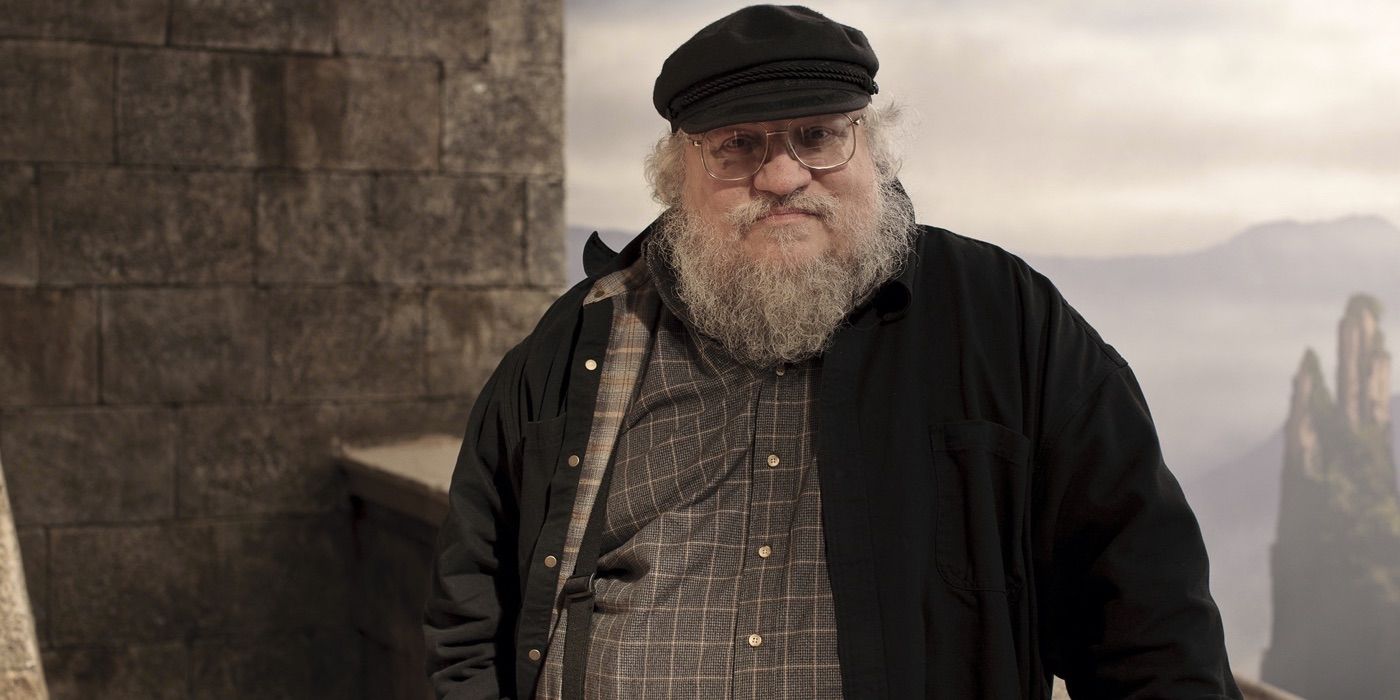
.jpg)
